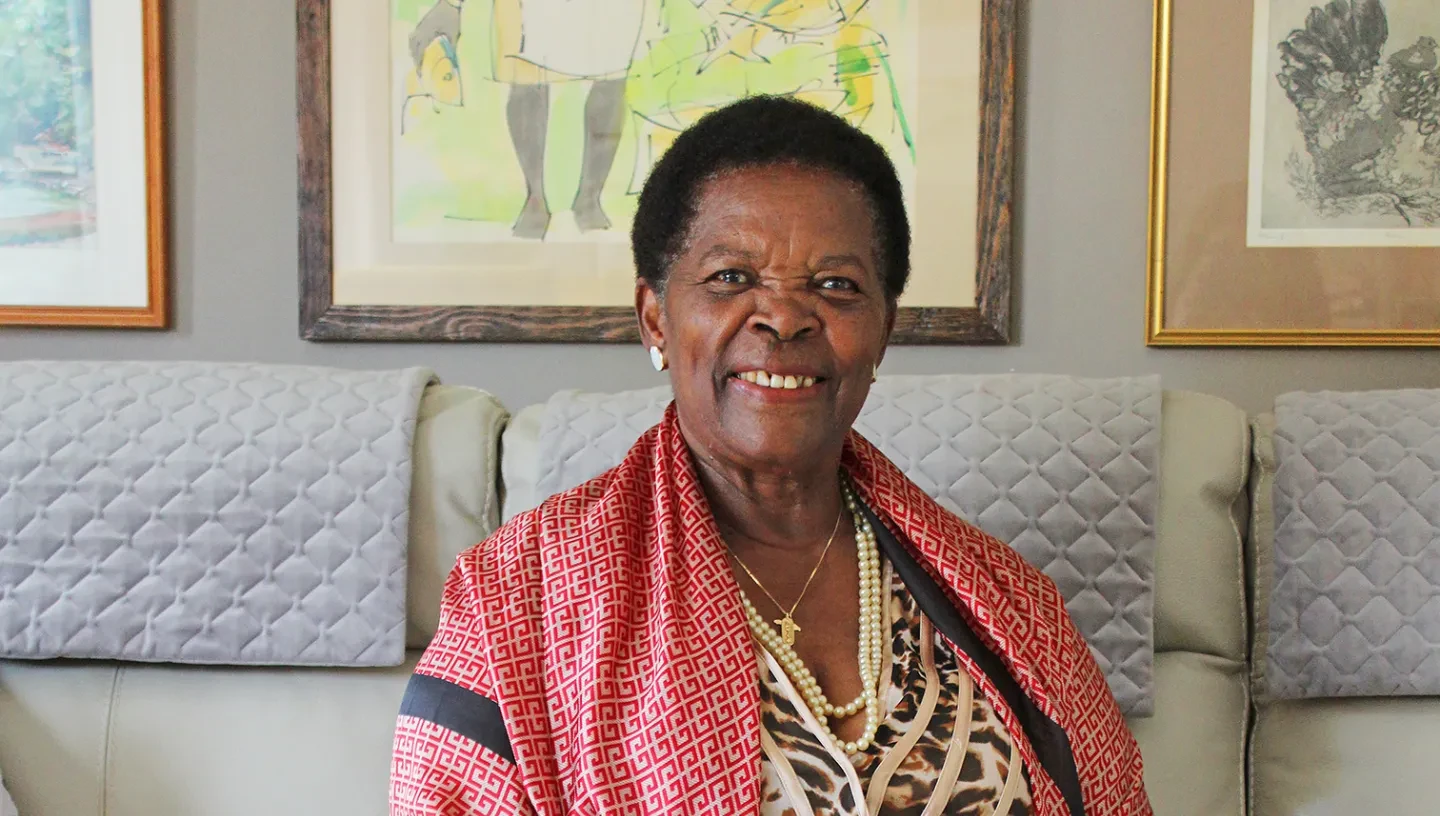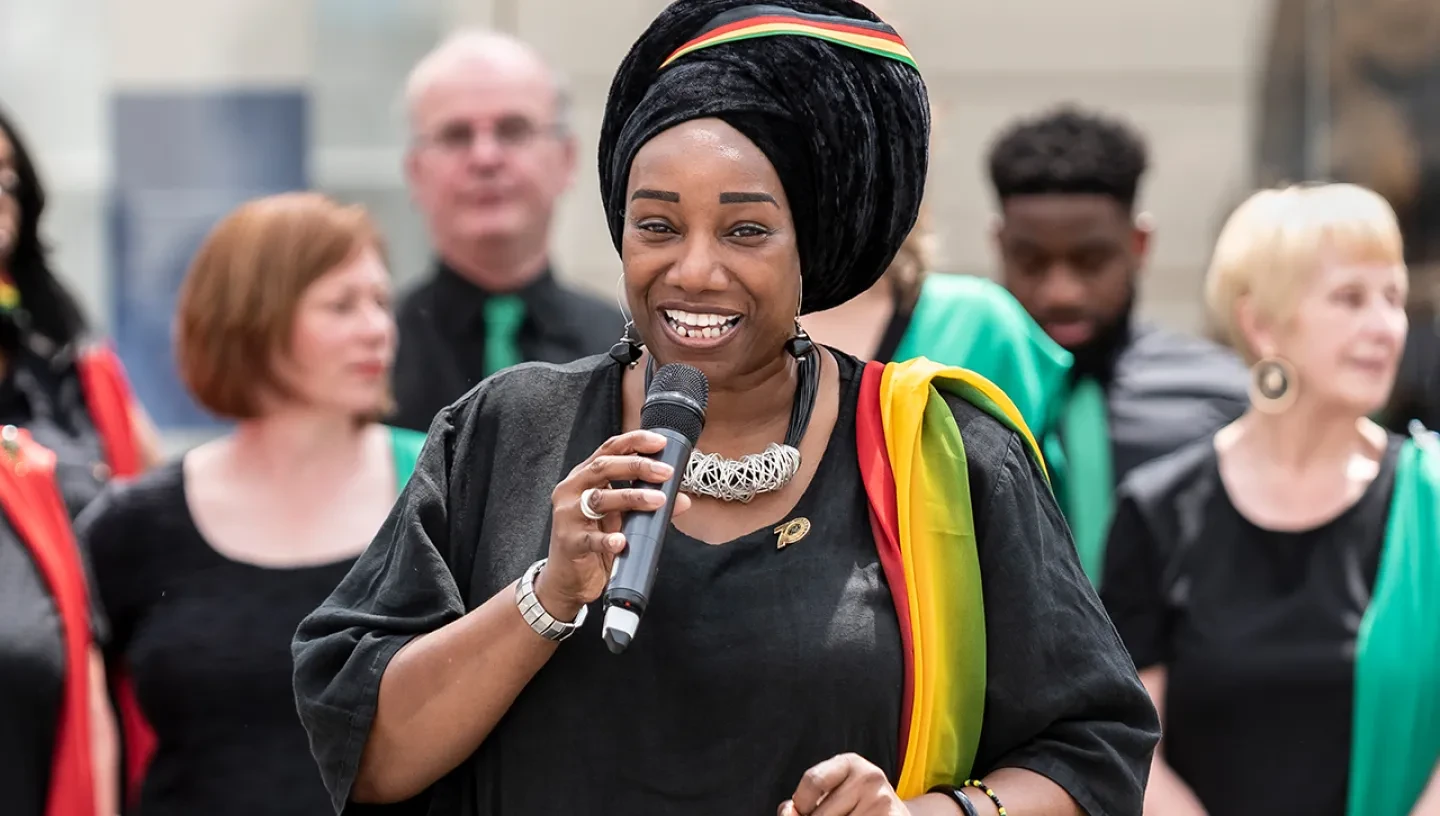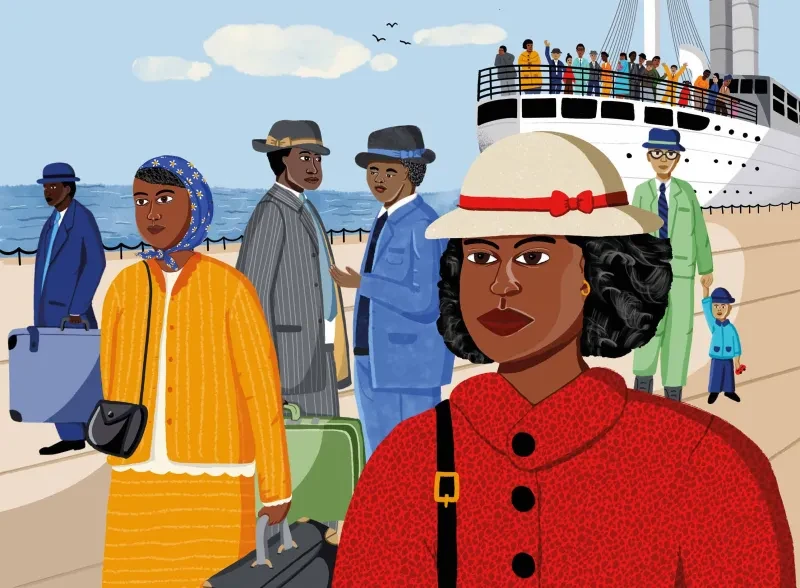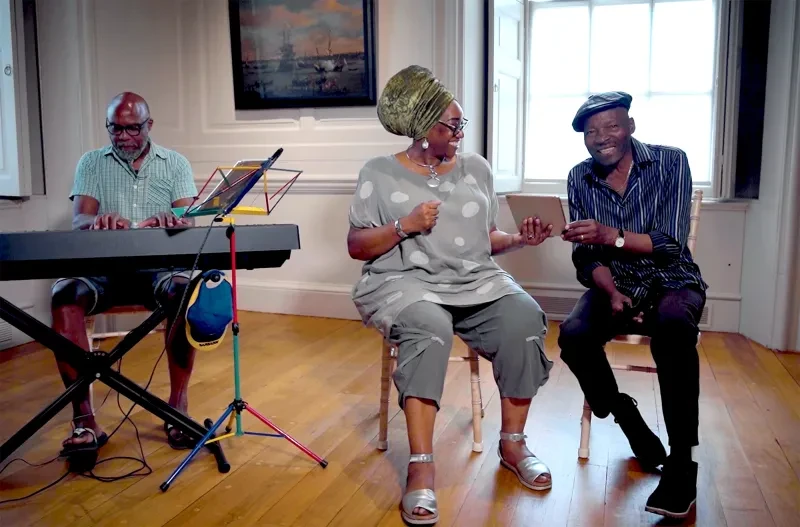
HMT Empire Windrush is best remembered today for bringing one of the first large groups of post-war Caribbean migrants to the United Kingdom in 1948.
The Windrush's arrival has become symbolic of the Commonwealth citizens who came to live in Britain between 1948 and 1971 and has given its name to this generation.
It was not the only ship to carry passengers to their new lives in the UK however.
Shirley Fox travelled with her mother on the SS Irpinia in 1956, joining her father and several of her siblings who had already moved to the UK between 1950 and 1956.
Find out more about Shirley’s journey from rural Jamaica to the bustling streets of London, shared with the National Maritime Museum in 2023. Click the videos to hear extracts from the oral history recording, and read on to discover her compelling story.
Early life in Jamaica
Shirley was born in Jamaica in 1940. Her father built a small house on land previously owned by her grandparents, where the family farmed the land and kept livestock.
Shirley and her five siblings helped out on the farm, doing chores like fetching water. She started school aged seven, having already been taught to read and write by an older sister.
She recalls a happy childhood with her siblings, singing ‘Brown Girl in the Ring’, bathing in the river and walking a mile each day to school.
Moving to the 'Motherland'
In 1950 her father, Eric, left for the UK aboard the SS Bayano. He had been offered a job working for British Rail and was bound for London. Shirley recalls not being aware of his plans to leave until the village gave him a farewell service.
This was to be the start of six years of separation while her father settled in the UK. One by one he sent for his children to join him in Britain, where they enrolled in various professional courses.
Shirley remembers a whirlwind of activity when the time finally came for her and her mother to leave. She was taken to Kingston, where she had her hair straightened for the first time, and was bought new clothes and a small suitcase. She recalls feeling excited but also apprehensive at the thought of being a Black person among the white children she was going to meet.
Shirley and her mother travelled on board the SS Irpinia. Shirley remembers little about the journey, something which she attributes to the stress she was under at the time, having left her home so suddenly to join a father she had not seen for six years.
They disembarked at Southampton on a grey and cloudy Sunday morning in May 1956. This was Shirley’s first glimpse of what she had been taught at school to think of as the ‘Motherland’, where streets were ‘paved with gold’. She recalls that it was cold, and that her father had brought coats for them to wear on the train journey to London.

After a short stint working in a laundry, Shirley had her first experience of a London comprehensive school. She admits she found it hard at first, surrounded by unfamiliar accents and learning an unfamiliar curriculum. As the only Black pupil in the school Shirley encountered significant prejudice, which she says she did not fully understand at the time.
Away from school Shirley spent time with family and friends of her father. She fondly recalls evenings they spent together, nights out with her brother at the Hammersmith Palais and walks around Blackheath and Greenwich.
Building a life in Britain
Shirley was ambitious; her father had set high expectations for all of his children and she more than lived up to them. After leaving school she attended teacher training college in Portsmouth and went on to teach biology at several London secondary schools.
After meeting her husband and marrying in the 1960s, Shirley had two children. She worked part time while they were small and then went to Goldsmiths' College in the evenings to study for a degree in Psychology. She went on to do a Master’s degree in Educational Psychology, which led to her being appointed as the Principal Educational Psychologist for Bexley.
Shirley’s story highlights the contribution made by so many of the Windrush generation to life in the UK.
'Caught between cultures'
Shirley chose to remain in the UK, even when her parents and some of her siblings returned to Jamaica.
She speaks of feeling caught between two cultures. When in Jamaica she describes feeling like both a foreigner and also Jamaican. In the UK meanwhile she identifies as British, speaking of the connection she feels to the UK – and especially to Greenwich.
Despite having faced racial prejudice and hard times in her life, Shirley feels that her strength helped her not only to survive but to thrive during her incredible journey from Jamaica to the UK. She is happy with her dual cultural identity, settled in a place she loves and calls home.



